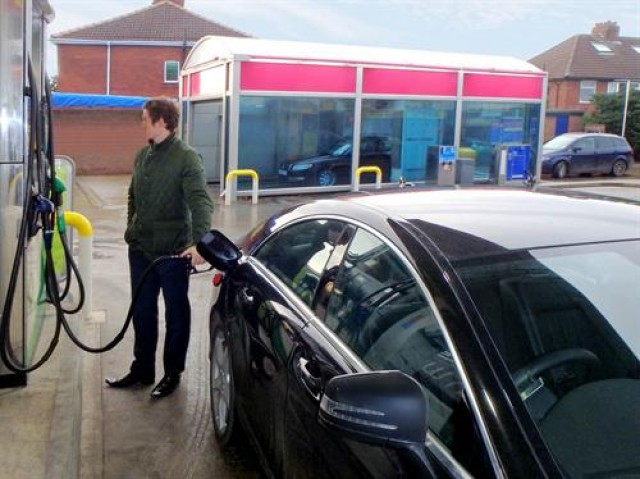Well, it's Budget 2015 Day. No, wait; come back out of that bomb shelter! Apparently it's not so bad any more. Michael Noonan and Brendan Howlin actually appear to have some cash to flash around the place this year, and so the headlines are all about tax rate cuts, changes to the dreaded water charges and a reduction in the reviled Universal Social Charge.
What there's not a lot of is any changes to the motoring world. There's been no rise (but equally no cuts either) in the duty rates on petrol or diesel for a start. While it's good to see that the government is not ramping up fuel costs, equally it's true that Irish prices at the pump have been rising in recent months while wholesale crude oil prices have actually been falling. It's a shame that nothing was even mentioned regarding this in the Budget, especially given the fact that many commuting motorists are already hard-pressed to afford their weekly refill.
No changes either to Vehicle Registration Tax (so the likes of Land Rover, Mitsubishi and Toyota can keep their tax-break 'Business' or 'Executive' quasi-commercial 4x4s for a while yet) or to motor tax rates or bands.
Essentially, that means that the Irish car trade is breathing a small sigh of relief. With sales picking up dramatically this year (we're almost certain to finish the year in sight of the 100,000 sales barrier) the last thing dealers or importers needed was a massive rocking of the boat, and in this instance at least, Mr Noonan has delivered what they wanted - status quo ante.
Alan Nolan, Director General of the Society of the Irish Motor Industry (SIMI), said that "we have seen the early signs of recovery in our industry this year with increased sales that have delivered the highest registrations since the recession started in 2008. In this context we particularly welcome the Minister's statement that none of the motoring taxes have been increased.
"In our Pre-Budget submission SIMI had outlined the importance for this Budget to deliver stability for businesses, through not increasing taxes and seeking to improve consumer confidence, both of which are necessary to support economic recovery in 2015. The Budget measures announced today mean that we can be confident about the year ahead. The increase in consumer spending power, resulting from today's budgetary measures, will help to increase business activity, creating thousands of extra jobs in our sector, and will boost Exchequer tax revenues in 2015.
"The motor industry has seen an encouraging recovery over the past 10 months with increased sales delivering €783 million to the Irish exchequer along with the provision of 3,000 new jobs in the sector. We are confident that with the stability, that should result from the Budget, we can continue on this upward trend in 2015.
"We would be hopeful that with these conditions the motor industry can deliver in excess of €100 million more from VRT and VAT from new car sales in 2015 and will be able to create a further 1,500 jobs in towns around the country, which would represent a further €36 million for the Exchequer."
Which is certainly not to say that Budget 2015 will have no effect on car sales next year. While it would be pretty safe to say that we should still see an upward trend again next year (considering that the recovery this year took place against the background of an austerity Budget delivered in 2013) there are a few issues that could put the brakes on car sales, to a greater or lesser extent. Water charges, still a hugely contentious issue, will be taking disposable income out of people's pockets next year, and that could well have an effect, while at the higher-earner end of the scale, the increase of the Universal Social Charge to eight per cent for those making more than €70,000 per annum could have some kind of knock-on effect on premium car sales.
Anything else?
Criticisms from the opposition that this Budget unfairly penalises the self-employed could, if accurate, put some pressure on small commercial vehicle sales, while the ending of the 'Double Irish' tax-avoidan... sorry, intelligent tax accounting system for multi-nationals could well trickle down into tighter car buying budgets in the future for those working in the tech and IT sectors, especially if those multi-nationals use the changes to the tax regime to justify cutting back on wages or staff levels.
Other than all that speculation, this is effectively a nothing budget for the motorist and motor industry. No boat rocking here, but equally nothing of value.

